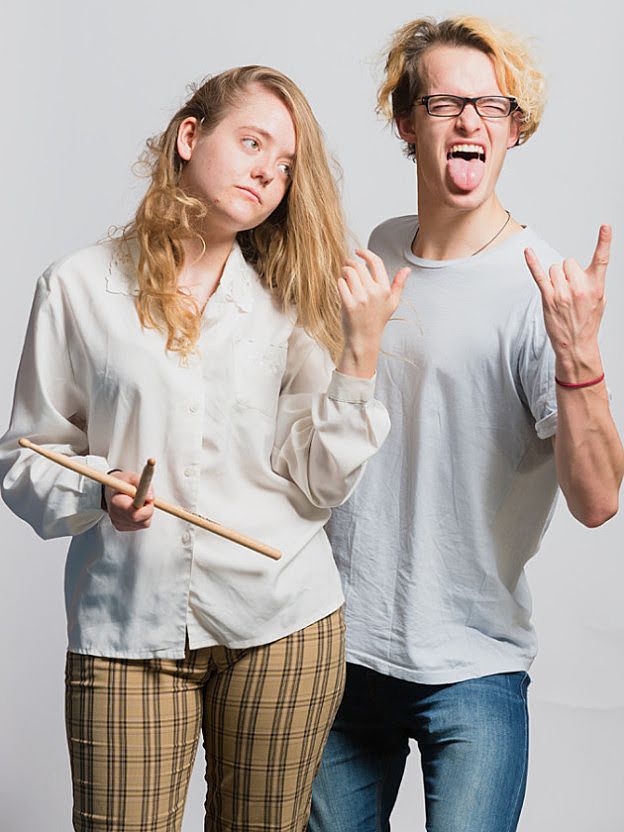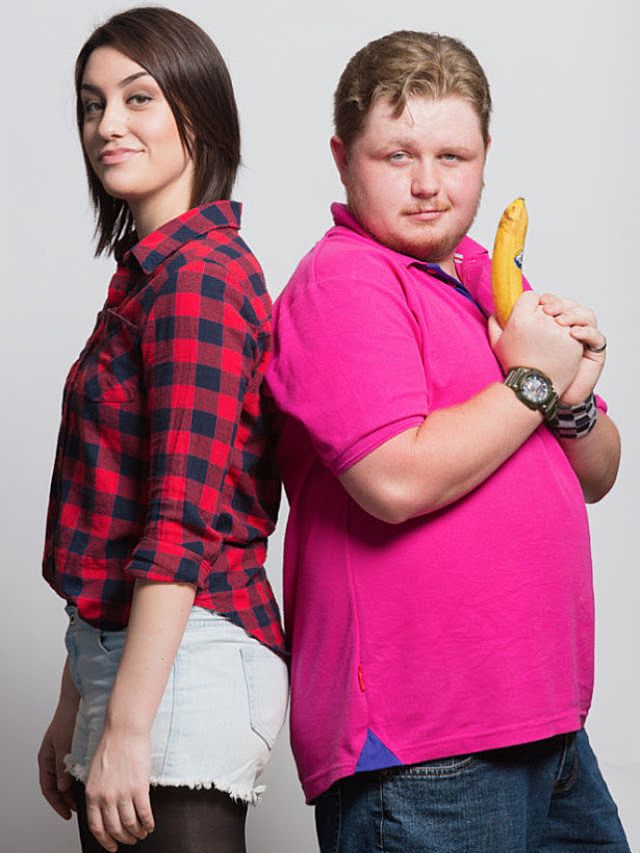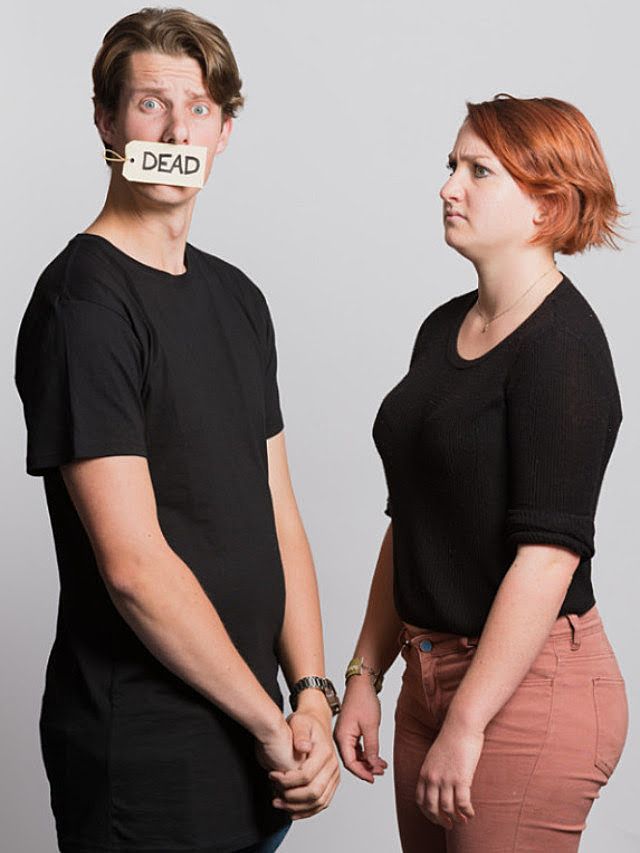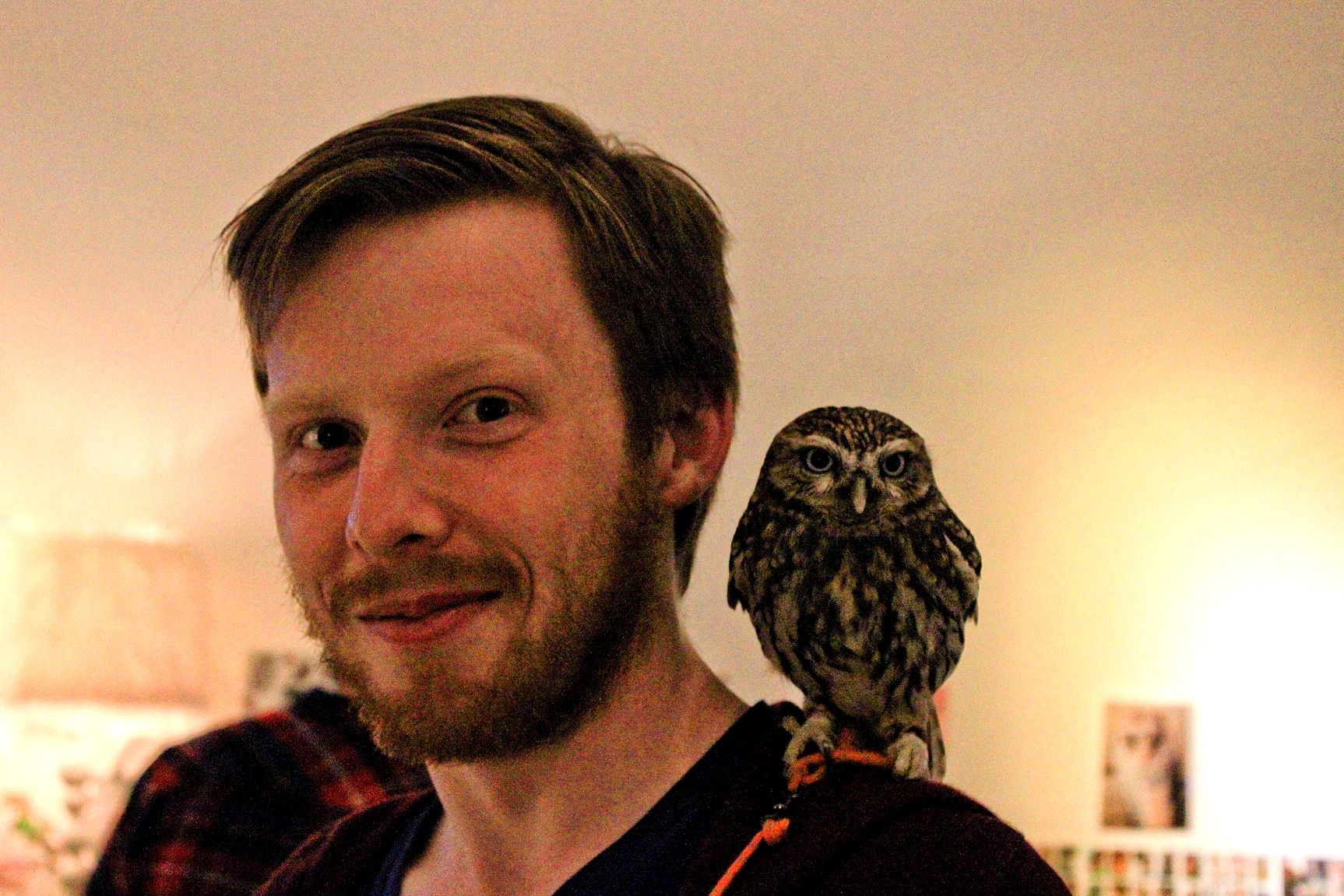Review: Young and Hungry Festival of New Theatre 2016
For the last 22 years, the Young & Hungry Festival of New Theatre has been giving young actors, designers and playwrights the opportunity to cut their teeth as professional theatre-makers. Adam Goodall takes a look at the latest season and the Young and Hungry institution.
For the last 22 years, the Young & Hungry Festival of New Theatre has been giving young actors, designers and playwrights the opportunity to cut their teeth as professional theatre-makers. Adam Goodall takes a look at the latest season and the Young and Hungry institution.
At the back of the programme for this year’s Young & Hungry Festival of New Theatre, there’s a brief timeline laying out the history of the Festival.
It starts in 1993, when the Programme Manager at BATS Theatre commissioned four plays to give under-25 year olds “hands-on theatre experience within a professional structure”. It then takes us through the next 22 years of creation, evolution and administration. Right near the end, it notes that Circa Theatre programmed a show in 2015, Ralph McCubbin-Howell’s Second Afterlife, “on the strength of its 2014 Young and Hungry season”.
It’s a triumphant note to end on, the biggest and most obvious example of how valuable Young & Hungry can be for its participants: they can end up on our main stages off the back of the Festival! But it also illustrates a broader problem with this year’s Festival, and perhaps the Festival more generally. Second Afterlife was a good play; is Young & Hungry as valuable when the plays aren’t up to that standard?
All three shows in this year’s Festival pivot around people adrift, trying to carve out their own sense of self with the limited tools at their disposal: language, experience, their families, their friends, their enemies. Lucy Craig’s Bloody Hell Jesus (Get Your Own Friends) charts the seismic shift in Shelley and Lauren’s lifelong friendship when Lauren becomes a born-again Christian; Nathan Joe’s Like Sex bounces us through eight scenes with seven teens as they grapple with sex, intimacy and their own identities, sexual and otherwise; and Owen Baxendale’s Dead Days drops us in a Palmerston North funeral home with Max, a 20-something mortician-in-training who won’t stop procrastinating over which direction his life should take, even when the dead come back to life in the basement.
Young & Hungry’s focus on emerging playwrights is worth celebrating. It’s especially heartening that two of the three plays commissioned this year, Bloody Hell Jesus and Dead Days, are written by first-timers. However, the Playwright’s Initiative – the vehicle through which Young & Hungry commissions and develops these scripts – is meant to be a rigorous process where the playwright’s vision is tested and refined over the course of a year through the advice of experienced mentors (Gary Henderson, Roy Ward and Dave Armstrong this year) and workshopping. All of these plays have been through this process and all of them have had at least four drafts. None of them feel like it.
Young & Hungry’s silo-based model - actors with directors, designers with mentors, playwrights with script advisors - has its benefits. But there's a middle-ground between 'too many cooks' and the current situation.
Bloody Hell Jesus is torn between its earnest coming-of-age story and its slobs vs snobs stand-off between Metalheads and Christians, but it never delivers a satisfactory version of either of these things. Craig does draw out some real and resonant moments as Shelley and Lauren drift apart, and she has fun with the arrogant and oblivious characters on the sidelines. One Christian, clad in all white, trills about her boyfriend, “He’s going to Cambodia to build orphanages;” he ‘humbly’ responds, “Just the one.”
But the script barely holds together. These underdeveloped teens drift through a story without any concrete sense of space or time, loudly declaring each beat and important theme along the way. Director Jane Yonge attempts to give the play form with grungy design choices - a huge halfpipe as a centrepiece, time periods scrawled on the floor in chalk - but these flourishes feel like they’ve been conceived and designed in silos, all neat ideas in isolation but messy and contradictory when brought together. These elements also do little to retroactively justify the casual, shrugged-off sexism that peppers the dialogue whenever the Metalheads open their mouths.
Like Sex is a far thornier piece of work. Adapting the 1897 play La Ronde for the modern age, Joe’s more than embraced the challenge of canvassing what it means to grow up, sexually and emotionally, in the 21st Century, but that doesn’t necessarily mean he’s conquered it. Joe’s dialogue has a fun, rat-a-tat rhythm when his seven teens are trading delicious rapid-fire barbs; the wheels come off when they stop speaking in sentences and start speaking in paragraphs.
All seven characters have the same glib, sharp-tongued voice and, like in Bloody Hell Jesus, they prefer to state their motivations and worldviews outright. That means every scene sounds the same, moves the same, rises and falls in the same ways. The cast and crew, led by director Samuel Phillips, add shade in the margins. Like in Phillips and Keagan Carr Fransch’s Spring Awakening earlier this year, everyone is always onstage, reacting to the action with visible hope and discomfort; extended, dialogue-free transitions are also set up to strengthen the links between these characters and make them part of a community, a society. This design, though, flips between working in harmony with the script and fighting with it.
This homogeneity also means that Joe deals with some pretty serious issues without anywhere near the sensitivity or gravity they need. There are plenty of examples of this, particularly in the play’s second half, but the worst comes at the halfway point. Natalie has a crush on James and they end up having sex, but James keeps going even after Natalie tells him to stop, oblivious to her pain. Minutes later, Joe acknowledges this as exploitation, an act of sexual violence. Instead of substantively addressing that or Natalie’s refusal to acknowledge that she was exploited – instead of engaging with important issues around consent and victim-blaming that are absolutely within the play’s frame of reference – Joe feints away and, through snarky lesbian Lisa, focuses on how Natalie didn’t get any pleasure out of it. It’s a staggering miscalculation, especially given its intended audience, reducing painful reality to a punchline.
Of all the plays, Owen Baxendale’s Dead Days is the most aware of itself. Baxendale’s script is a fun and light-hearted goof about young people trapped by indecision and expectation, populated with strongly-drawn comedy archetypes. Baxendale’s script constantly tests the limits of Max’s neuroticism, opening with his poorly-attended birthday party and ratcheting up his bad luck – the forced betrayals, the secrets revealed, the friends coming back from the dead – until he’s forced to make a decision about his life.
Dead Days is at its best when Max is bouncing between the people in his life – his burnout best friend, his committed (perhaps clingy) dad, his sociopathic Generation Me flatmates – and agonising over their expectations; Baxendale stumbles into mawkishness when he tries to push those characters further. A monologue about suicide jars after the easy-going gags of the first forty minutes, while Max’s girlfriend Lydia’s frustrated kiss-off, “What I want is to not be a bit part in your story”, rings hollow given that’s exactly the role the script has her playing. It doesn’t help that director Debra Mulholland drags out each scene, precious seconds of silence echoing between each set-up and punchline. There’s little sense of momentum or choreography, which is most obvious when Max and his deadbeat mate Andy tussle for what feels like forever over a box of Max’s treasured items. Dead Days clocks in at 80 minutes but it doesn’t feel like it should.
Most, if not all, of these problems can be traced back to the process. The script is set in stone months before the people making it get a look in; the budding designers report to both their directors and their mentors; the actors audition for everything and are picked like tools in a toolshed.
Young & Hungry’s silo-based model - actors with directors, designers with mentors, playwrights with script advisors - has its benefits, ensuring that mentors are hands-on with their students and that playwrights get to chase ideas without too many voices crowding out their thoughts. But there’s a middle-ground between 'too many cooks' and the current situation.
That current situation looks like a conveyer belt, starting with the playwrights and the organisation itself. By time the play reaches its directors, performers and designers, it’s already essentially complete. That team just has to work within the limits already set. This system is great for giving the playwright something tangible at the end of a year, but new plays exist and grow and develop in the room, too. That’s the problem: the Festival of New Theatre, by its very design, prioritises the playwright’s ability to see a year’s work on stage - and the stability of having something to stage instead of a blank slot in the programme - over the continued development of high-quality work that engages the young actors and designers (and playwrights!), responds to them and fires them up, on both a practical and a creative level.
That’s not to say that this system hasn’t served those young people well in the past. It’s produced great, challenging plays like Miria George’s Urban Hymns, Joseph Harper’s Atlas/Mountains/Dead Butterflies, Uther Dean’s 7500 Days and, yes, Ralph McCubbin-Howell’s Second Afterlife. But the Festival of New Theatre hosts a number of incredibly talented young actors and designers every year, not to mention the three emerging playwrights, all of whom are thirsty to prove themselves through their work. The actors and designers deserve the opportunity to participate in the creation of a work, and the playwrights deserve the opportunity to have access to whatever they need to make their play the best it can be, even if that means looking past the 12-month deadline. They deserve a process that responds to their thirst. They deserve a process that makes stronger plays.
The Young and Hungry Festival of New Theatre 2016 runs at
BATS Theatre, Wellington
from Friday 15 July to Saturday 30 July
For tickets to and more information about Bloody Hell Jesus (Get Your Own Friends), go here.
For tickets to and more information about Like Sex, go here.
For tickets to and more information about Dead Days, go here.



